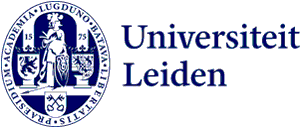Debate | Symposium
LGBTIQ+ Employee Resource Groups: Benefits, Challenges and Opportunities
- Date
- Thursday 19 May 2022
- Time
- Address
-
Academy Building
Rapenburg 73
2311 GJ Leiden - Room
- Telders Auditorium
Livestream
No image? Please refresh the page to re-establish the connection.

While organisational attention to the topics of workplace equality and inclusion has increased, some social groups are still disadvantaged. To support Lesbian, Gay, Bisexual, Transgender, Intersex, and Queer (LGBTIQ+) employees at work, many organisations have LGBTIQ+ employee resource groups (ERGs). These groups are uniquely placed to provide a safe space for LGBTIQ+ employees, facilitate alliances between these employees and their ally colleagues, and advocate for structural changes in the organisation. The evidence base on LGBTIQ+ ERGs remains limited and partial, however, leaving a large knowledge gap on how networks function and their capacity to improve the experiences of LGBTIQ+ employees at work.
In this symposium, Prof. Anna Einarsdottir (York University) and Prof. Jojanneke van der Toorn (Leiden University) share insights from their recent research on the topic, discussing the promises and pitfalls of LGBTIQ+ ERGs and how they can be most effective. A panel including LGBTIQ+ ERG representatives will reflect on the findings, share insights from practice, and discuss how ERGs can contribute to LGBTIQ+ workplace inclusion.
Programme
10:15-10:30 Doors open
10:30-12:00 Symposium
- Have LGBTIQ+ employee resource groups been derailed?
Prof. Anna Einarsdottir, Senior Lecturer in Work, Management & Organising at York University, UK - Top down or bottom up? Strategies to assess the needs of LGBTIQ+ employees
Prof. Jojanneke van der Toorn, Professor of LGBT+ Workplace Inclusion at Leiden University, Workplace Pride Chair at Leiden University - Getting down to business: Maximizing the benefits of LGBTIQ+ employee resource group
Panel discussion
12:00-13:00 Coffee and Tea
Organisers
This event is organised by Jojanneke van der Toorn, Eva Jaspers, Chenhao Zhou, Kshitij Mor and Paula Hoffmann, in collaboration with Academia@WorkplacePride. We can be contacted at lgbtqi.inclusion@gmail.com
Accessibility
We would like the symposium to be accessible to everyone. We hope the absence of a participation fee and the possibility to view a live stream contribute to this. Please note that the symposium location is wheelchair accessible. We will make sure to ask the speakers to articulate clearly. We very much welcome your suggestions for how we can be more inclusive.
Abstracts
Prof. Anna Einarsdottir
Drawing on a major Economic and Social Research Council funded mixed method study into LGBTIQ+ employee resource groups with the National Health Service in the UK, this paper presents some of the key findings and explores issues around resource group membership, inclusion, how employee resource groups operate and pressure on these groups to evidence impact. The paper argues that the role of employee resource groups has shifted from supporting LGBT+ employees to championing a broader organisational agenda on equality, diversity and inclusion. In turn this raises some difficult questions around who the groups are for and what they do for members, allies, wider LGBT+ communities and the organisation, and ultimately, what is the purpose of employee resource groups.
Prof. Jojanneke van der Toorn
LGBTIQ+ people continue to face unique challenges, with their voices often being unheard or even silenced. While organisations put great effort into creating more inclusive workplaces, it is unclear whether and to what extent they succeed in catering to the diversity of people encompassed by the LGBTIQ+ acronym. Little attention, both in research and in practice, seems to be paid to those community members with intersecting marginalised identities (for example, queer employees of colour). This research explored what strategies are used in organizations to assess the workplace experiences and needs of employees and whether and to what extent these strategies are likely to reach and represent diverse LGBTQI+ employees.
